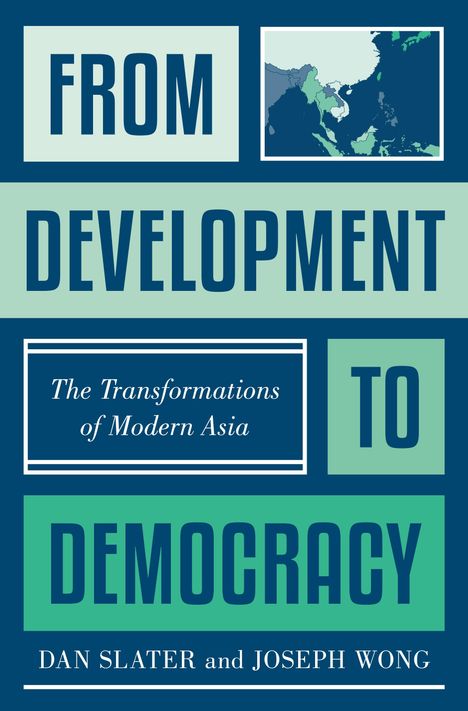Dan Slater: From Development to Democracy, Kartoniert / Broschiert
From Development to Democracy
- The Transformations of Modern Asia
(soweit verfügbar beim Lieferanten)
- Verlag:
- Princeton University Press, 08/2024
- Einband:
- Kartoniert / Broschiert
- Sprache:
- Englisch
- ISBN-13:
- 9780691231082
- Artikelnummer:
- 11779992
- Umfang:
- 368 Seiten
- Gewicht:
- 562 g
- Maße:
- 234 x 156 mm
- Stärke:
- 21 mm
- Erscheinungstermin:
- 20.8.2024
- Hinweis
-
Achtung: Artikel ist nicht in deutscher Sprache!
Weitere Ausgaben von From Development to Democracy |
Preis |
|---|
Klappentext
Why some of Asia's authoritarian regimes have democratized as they have grown richer-and why others haven't
Over the past century, Asia has been transformed by rapid economic growth, industrialization, and urbanization-a spectacular record of development that has turned one of the world's poorest regions into one of its richest. Yet Asia's record of democratization has been much more uneven, despite the global correlation between development and democracy. Why have some Asian countries become more democratic as they have grown richer, while others-most notably China-haven't? In From Development to Democracy , Dan Slater and Joseph Wong offer a sweeping and original answer to this crucial question.
Slater and Wong demonstrate that Asia defies the conventional expectation that authoritarian regimes concede democratization only as a last resort, during times of weakness. Instead, Asian dictators have pursued democratic reforms as a proactive strategy to revitalize their power from a position of strength. Of central importance is whether authoritarians are confident of victory and stability. In Japan, South Korea, and Taiwan these factors fostered democracy through strength, while democratic experiments in Indonesia, Thailand, and Myanmar were less successful and more reversible. At the same time, resistance to democratic reforms has proven intractable in Singapore, Malaysia, Hong Kong, China, Vietnam, and Cambodia. Reconsidering China's 1989 crackdown, Slater and Wong argue that it was the action of a regime too weak to concede, not too strong to fail, and they explain why China can allow democracy without inviting instability.
The result is a comprehensive regional history that offers important new insights about when and how democratic transitions happen-and what the future of Asia might be.

